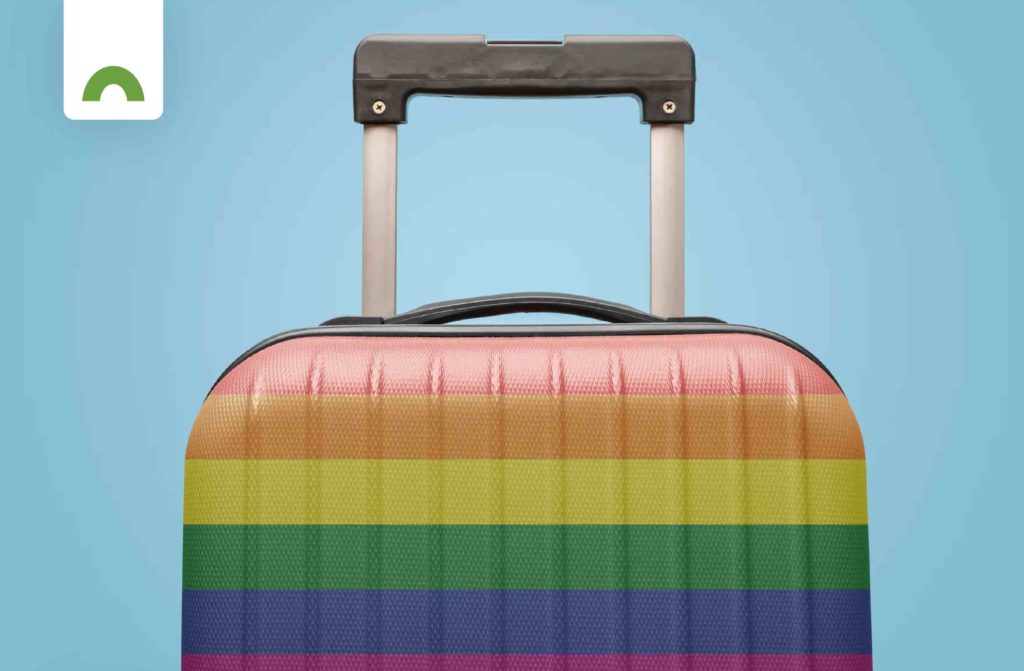UNWTO reported that about 36 million overnight visitors travelling to international destinations in 2018 were LGBTQ+
That shouldn’t surprise anyone. After all, LGBTQ+ travellers want just the same life-changing, memorable experiences, and have just the same pent-up demand as everyone else.
The travel industry has woken up to the pink dollar prospect. We decided to take a long overdue look…
Qualifying the rainbow
From tourism marketers to hospitality to tour operators, the penny has dropped: if you don’t know what LGBTQ+ stands for, make it your business to find out. Apart from impacting revenue, there’s also a matter of social inclusivity – we serve a diverse customer base. And acceptance starts with rejecting stereotypes and avoiding generalised assumptions.
Travel professionals exploring the LGBTQ+ market can qualify this segment by:
- allowing individuals to self-identify their interests, their preferred pronouns and titles;
- considering culture, gender, age, religion, socio-economic class the same way as with any other traveller;
- accepting that families can look very different from the traditional family unit;
- joining global trade associations like IGLTA to stay abreast of diversity standards;
- prioritising personal safety, acceptance, inclusion, and freedom to be themselves;
- understanding their high receptivity to responsible tourism, to give back to the environment and local communities as a way to express solidarity, especially having suffered from discrimination and repression themselves.
Flying the flag
Plenty of research has been done over the last decade into how the travel industry can address LGBTQ+ needs. Here are some examples of destinations making clear overtures:
- Canada – the Montreal tourism board is one of the first to market directly to the community, hosting familiarisation trips for LGBTQ+ travel writers, launching the Queer of the Year contest in 2010, and focusing on appropriate messaging in relevant forums.
- South Africa – one of the first African countries to legalise same-sex marriage and commit to equal rights to all visitors, this country prides itself on diversity. Some exclusively-gay guesthouses have directly targeted European, US and domestic markets. While news like Cape Town being its Gay capital spread among the community by word-of-mouth, tour operators have been selling African adventure products and cosmopolitan urban experiences in tandem with local Gay Pride events.
- Thailand – the Thai tourism board created Go Thai Be Free, a microsite dedicated to LGBTQ+ travellers, presenting a range of tailored luxury experiences. It features events and special offers, lists ‘friendly’ hotels, celebrates diversity, and tells stories directly from their local LGBTQ+ community.
The trailblazers tend to be destinations that have passed legislation around same-sex relationships. There are, however, welcoming pockets of acceptance among more conservative countries, just as localised intolerance exists inside countries with relaxed laws. The situation changes constantly – insider info like this Asher & Lyric guide will help keep you up-to-date on safe destinations for LGBTQ+ visitors.
Embracing the LGBTQ+ traveller
The uptick in same-sex marriage legislation worldwide will increase the community’s demand for wedding and honeymoon trips. Generally though, they’re keen on exploring, relaxing, historical attractions, outdoor adventures, and scenic beauty. The growing number and popularity of Gay Pride festival will continue to draw crowds over time, with each event.
Some experts note a trend factor at play with observers wondering ‘Where will the gays go next’ because that’s where the diverse rest will follow – the notion being, wherever they are welcomed, everyone will be welcomed.
Here’s a community that travels often, spends well, and stays loyal. So, if you want to explore all this potential:
- Offer safe options and alternatives for LGBTQ+ travellers who would otherwise find it difficult to plan their trips independently.
- Check out what specialists like Detours and Olivia do, and design your own specialised small group tours. Connect with NGOs that support LGBTQ+ rights for guidance.
- Align your brand values with the community and provide sensitivity training for your staff.
- Roll out gender-neutral guest forms. Rather than being prescriptive, ask questions at the booking stage to help qualify your customer.
- Document your sexual orientation non-discrimination policy, and make it visible on your site.
- If you want their business, show it consistently. Once-off mentions and offers around Gay Pride festival time can come off insincere and opportunistic. Also, refrain from ‘rainbow washing’ – adding rainbow flags to communications without substance.
- Tour operators should vet their suppliers, and properties can join a consortium recognised on GDS systems as welcoming of LGBTQ+ guests.
- Consult your own LGBTQ+ staff members to keep your brand messaging attuned to the audience. Empower them to express themselves freely during interactions with customers, informing them of the local nightlife, gay districts, and which areas are relaxed and welcoming.
- Familiarise yourself with laws, comfort levels and attitudes in your destination regarding public displays of affection, so that you can advise customers how and where to exercise caution.
- Develop products with special rates around Gay Pride festivals happening throughout the year, in collaboration with other queer-friendly service providers in the destination.
- Ensure your marketing visuals represent diversity and incorporate customer UGC into the mix. Use and share popular LGBTQ+ hashtags with your customers to use on their own social media posts.
- Create blog posts about welcoming destinations and tailored LGBTQ+ experiences.
- Proclaim on your website that you welcome the LGBTQ+ community.
The LGBTQ+ market segment has been one of the fastest-growing globally for over a decade, well worth investing resources into learning about and understanding the sector. The signs are there, and so is the information – at trade shows like Berlin ITB where education, resources and research are made readily available.
Keen to diversify and grow your target market? Do your research and embrace the rainbow!


Would you like to share your thoughts?
Your email address will not be published. Required fields are marked *